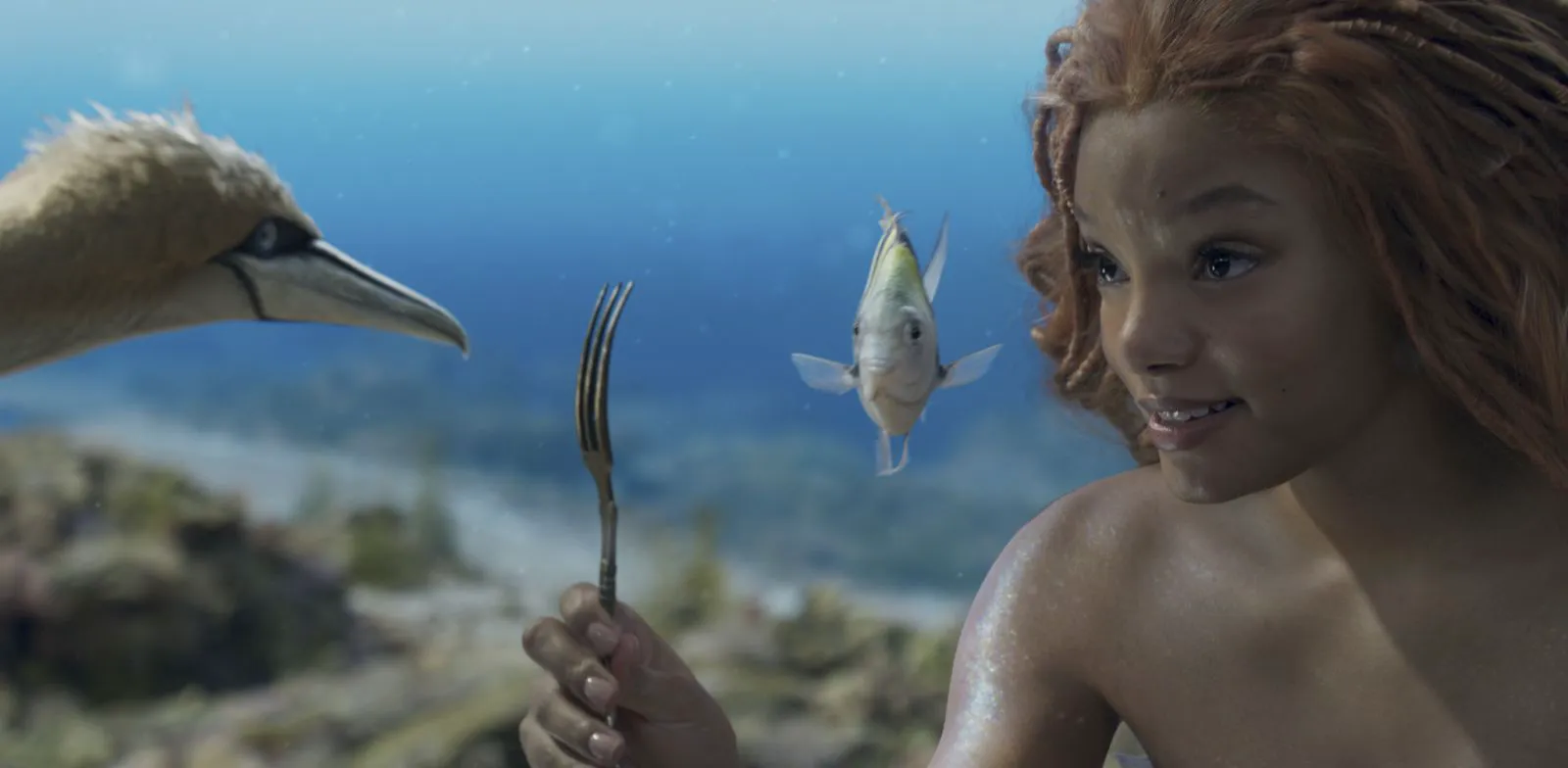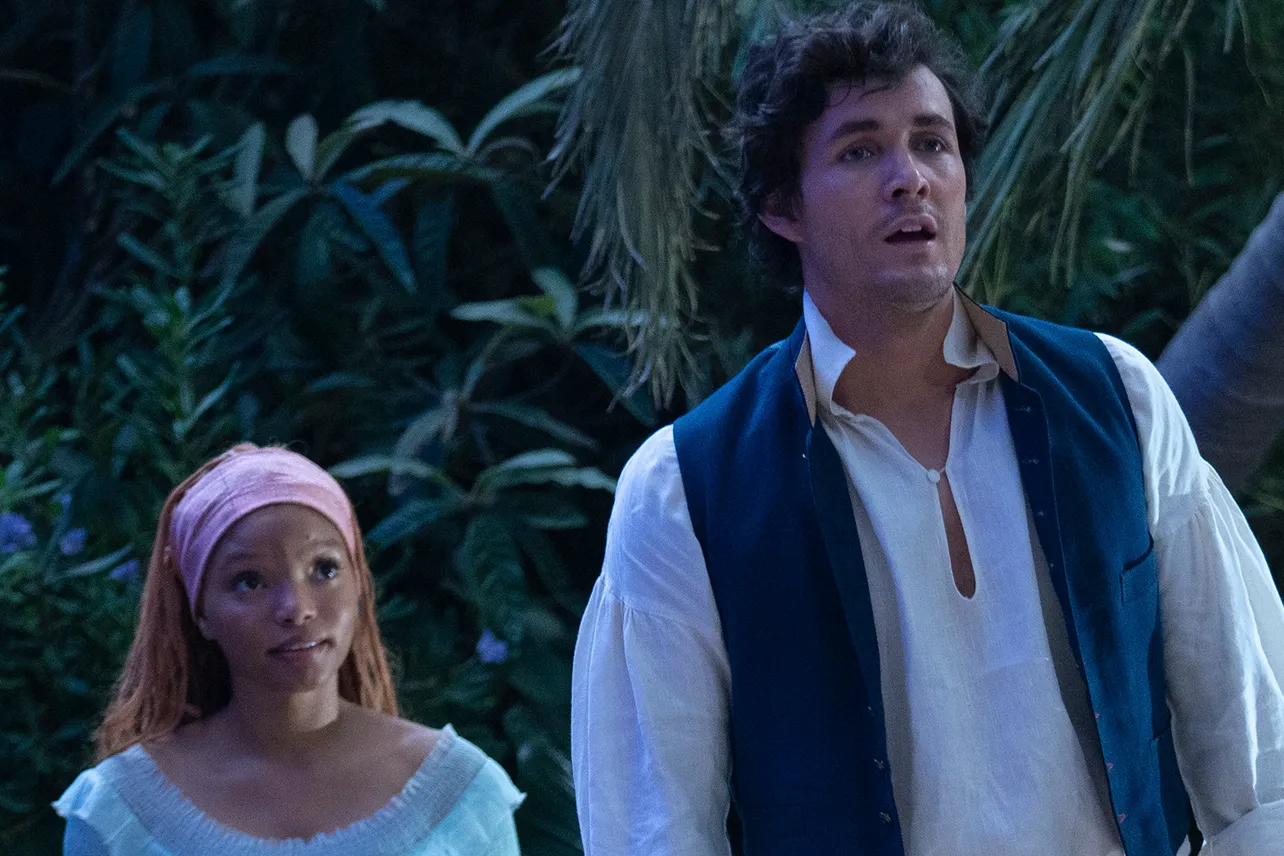Year after year, Disney tirelessly continues to remake its own animated hits, which have become an integral part of the childhood of most millennials. The goal of such an event is not exactly noble — Disney sells nostalgia at special bonus prices, manipulates audience expectations, and hardly lives up to them. As independent works of art, live-action remakes usually don’t work and only blindly follow the original’s outline, frame by frame repeating famous scenes from cartoons. In recent years, Disney’s formula for success has been working worse and worse: the ratings of the new adaptations of “Pinocchio,” “Mulan,” and “Peter Pan” leave much to be desired. Nevertheless, the content production machine continues to enslave the global box office and doesn’t seem to be stopping.

Halle Bailey as Ariel in a still from “The Little Mermaid”
“The Little Mermaid” began to be criticized long before the actual production of the film. The reason for the general discontent was, oddly enough, the choice of American singer Halle Bailey for the role of Ariel. Fans of the original “Little Mermaid” were embarrassed by Bailey’s skin color, which bears little resemblance to the canonical Disney princess. Audience claims can even be understood in a way — all previous castings of the “mouse studio” faithfully echoed the drawn cartoons, take the same “Mulan” or “Beauty and the Beast.” In “Pinocchio,” they even created a special 3D version of the main character from the 1940 cartoon. Nevertheless, the blind casting of Ariel partially diminished the very secondary nature for which the previous remakes were criticized, and generally tried to bring something new to the universally loved fairy tale — for example, an important social context about the archetypal nature of the female image, which is the same for all races and nationalities.

Jonah Hauer-King as Prince Eric in a still from “The Little Mermaid”
The director of “The Little Mermaid” was Rob Marshall — a man who has managed to establish himself as a talented director of musicals, who, however, does not always keep up with the demands of the audience. His last Disney work — the remake of “Mary Poppins Returns” — did not win either love or recognition. Fortunately, in “The Little Mermaid,” the director abandoned dubious animated inserts, but he also did not meticulously copy the original. Ariel and Eric, played by “A Dog’s Way Home” star Jonah Hauer-King, got a couple of new songs that suddenly have every chance of becoming hits. In general, Marshall tried to divide the timing as evenly as possible between the main characters, which, for example, the original cartoon could not boast at all. Eric received his own backstory and even a small internal challenge associated with the excessive responsibility for a small, but still kingdom.

Halle Bailey as Ariel in a still from “The Little Mermaid”
Halle Bailey, to her credit, does not seek to mimic the classic image of Ariel, does not impress with acting — rather with a talented vocal, which, alas, Emma Watson could not boast in “Beauty and the Beast.” In general, the musical part of “The Little Mermaid” definitely dominates the narrative — the scene under Sebastian’s (Daveed Diggs) song Under the Sea with a galaxy of pink jellyfish, dancing dolphins, sparkling sea stars and other diversity of marine fauna even claims to be the best in the film. A sudden revelation was the hip-hop freestyle from the seagull Scuttle performed by the well-known Awkwafina.
In terms of the script, “The Little Mermaid,” as expected, does not offer anything new, except perhaps a couple of simple romantic moments with the participation of the main characters. Ursula, played by Melissa McCarthy, is frightening only with a negligible amount of time in the film and clearly asks for a solo project. At least, the experience with “Cruella” showed that such spin-offs are in demand.
Against the background of other, much more faceless (“Mulan”), and in some places frankly boring (“Pinocchio”) reboots of Disney, Rob Marshall’s work stands out due to an extraordinary, and in some places even radical rethinking of the characters. There are many kinds of absurdities in “The Little Mermaid” that I just don’t want to talk about, because in a global sense, the picture fully meets the expectations placed on it — it returns the lost childhood, bringing a fraction of contrast to the textbook story. In the end, every girl in this world should have her own role model, and Ariel from the new “Little Mermaid” fully justifies this title.